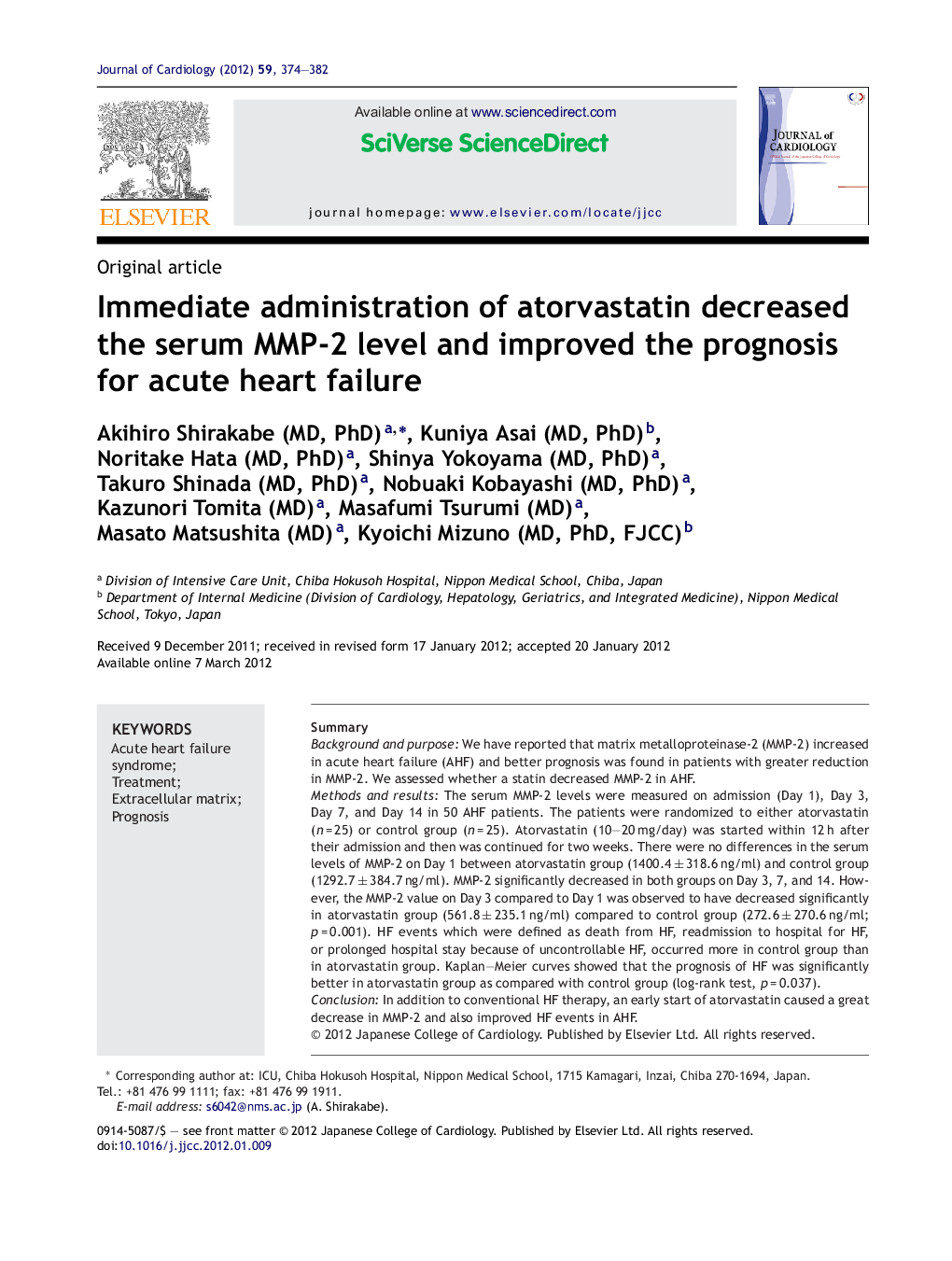| Article ID | Journal | Published Year | Pages | File Type |
|---|---|---|---|---|
| 2963527 | Journal of Cardiology | 2012 | 9 Pages |
SummaryBackground and purposeWe have reported that matrix metalloproteinase-2 (MMP-2) increased in acute heart failure (AHF) and better prognosis was found in patients with greater reduction in MMP-2. We assessed whether a statin decreased MMP-2 in AHF.Methods and resultsThe serum MMP-2 levels were measured on admission (Day 1), Day 3, Day 7, and Day 14 in 50 AHF patients. The patients were randomized to either atorvastatin (n = 25) or control group (n = 25). Atorvastatin (10–20 mg/day) was started within 12 h after their admission and then was continued for two weeks. There were no differences in the serum levels of MMP-2 on Day 1 between atorvastatin group (1400.4 ± 318.6 ng/ml) and control group (1292.7 ± 384.7 ng/ml). MMP-2 significantly decreased in both groups on Day 3, 7, and 14. However, the MMP-2 value on Day 3 compared to Day 1 was observed to have decreased significantly in atorvastatin group (561.8 ± 235.1 ng/ml) compared to control group (272.6 ± 270.6 ng/ml; p = 0.001). HF events which were defined as death from HF, readmission to hospital for HF, or prolonged hospital stay because of uncontrollable HF, occurred more in control group than in atorvastatin group. Kaplan–Meier curves showed that the prognosis of HF was significantly better in atorvastatin group as compared with control group (log-rank test, p = 0.037).ConclusionIn addition to conventional HF therapy, an early start of atorvastatin caused a great decrease in MMP-2 and also improved HF events in AHF.
